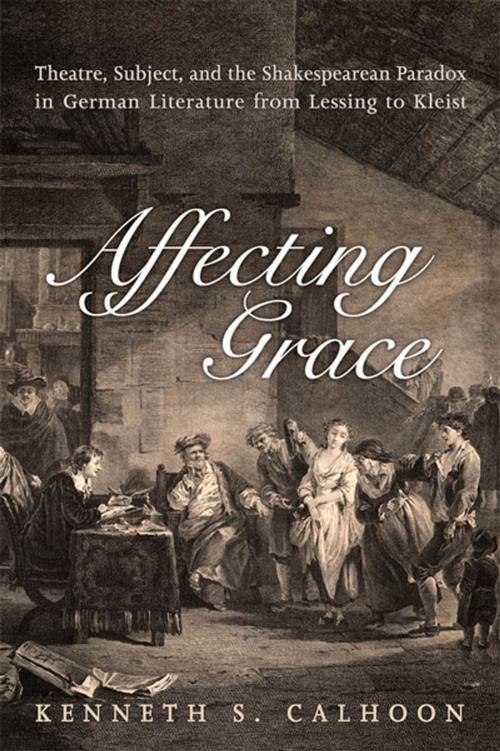Affecting Grace
Literature from Lessing to Kleist
Fiction & Literature, Literary Theory & Criticism, European, German, Nonfiction, Entertainment, Drama, Shakespeare| Author: | Kenneth C. Calhoon | ISBN: | 9781442664166 |
| Publisher: | University of Toronto Press, Scholarly Publishing Division | Publication: | April 9, 2013 |
| Imprint: | Language: | English |
| Author: | Kenneth C. Calhoon |
| ISBN: | 9781442664166 |
| Publisher: | University of Toronto Press, Scholarly Publishing Division |
| Publication: | April 9, 2013 |
| Imprint: | |
| Language: | English |
Affecting Grace examines the importance of Shakespeare’s poetry and plays within German literature and thought after 1750 – including its relationship to German classicism, which favoured unreflected ease over theatricality. Kenneth S. Calhoon examines this tension against an extensive backdrop that includes a number of canonical German authors – Goethe, Schiller, Herder, Lessing, von Kleist, and Nietzsche – as well as the advent of Meissen porcelain, the painting of Bernardo Bellotto and Francesco Guardi, and aspects of German styles of architecture.
Extending from Shakespeare’s The Merchant of Venice (c. 1597) to Kleist’s The Broken Jug (1806), this study turns on the paradox that the German literary world had begun to embrace Shakespeare just as it was firming up the broad but pronounced anti-Baroque sensibility found pivotally in Lessing’s critical and dramatic works. Through these investigations, Calhoon illuminates the deep cultural changes that fundamentally affected Germany’s literary and artistic traditions.
Affecting Grace examines the importance of Shakespeare’s poetry and plays within German literature and thought after 1750 – including its relationship to German classicism, which favoured unreflected ease over theatricality. Kenneth S. Calhoon examines this tension against an extensive backdrop that includes a number of canonical German authors – Goethe, Schiller, Herder, Lessing, von Kleist, and Nietzsche – as well as the advent of Meissen porcelain, the painting of Bernardo Bellotto and Francesco Guardi, and aspects of German styles of architecture.
Extending from Shakespeare’s The Merchant of Venice (c. 1597) to Kleist’s The Broken Jug (1806), this study turns on the paradox that the German literary world had begun to embrace Shakespeare just as it was firming up the broad but pronounced anti-Baroque sensibility found pivotally in Lessing’s critical and dramatic works. Through these investigations, Calhoon illuminates the deep cultural changes that fundamentally affected Germany’s literary and artistic traditions.















